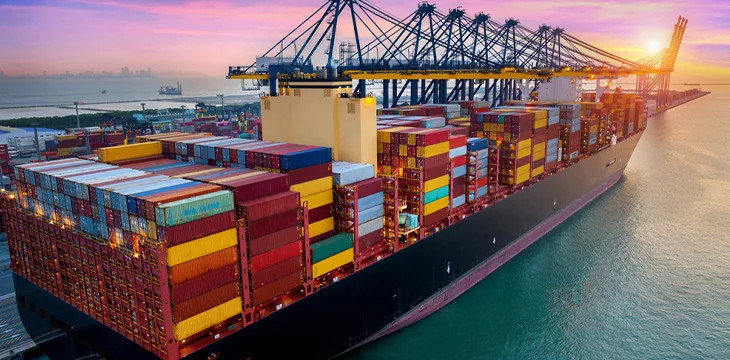Japanese shipping giant Mitsui OSK Lines (MOL) has unveiled a new carbon deployment plan using blockchain technology across its value chain.
The plan includes symbolizing the CO2 reduction resulting from the use of biofuels in its activities. Typically, shipping companies looking to reduce their carbon footprint turn to carbon credits, outsourcing environmental sustainability efforts to another entity.
Instead of relying on outsourcing, MOL says it will focus on financing climate protection projects by keeping CO2 emissions to the bare minimum. The company says it will increase its efforts with other carbon reduction methods, including the use of carbon credits and good value chain management.
A key aspect of MOL’s plan is its reliance on blockchain for its plans. In addition to tokenization use cases, the shipping company will leverage the immutability and transparency of blockchain to increase trust in its systems.
MOL relies on 123Carbon to design the blockchain system for deployment, with Verifavia and AllChiefs serving as third-party assurance and implementation partners, respectively. The shipping company turned to Canada-based Methanex for biofuel, with experts hailing the industry’s pioneering move.
“To achieve our global climate goals we need more low-carbon fuels and bio-methanol is one of the promising solutions for the shipping sector,” said Jeroen van Heiningen, Managing Director of 123Carbon.
MOL’s use is based on a book and claims model in which a company is separated from the physical flow of its goods when making sustainability claims. In MOL’s case, its products can be shipped on ships that do not use biofuels, but the company can purchase inserts similar to Sustainable Aviation Fuel (SAF) cases.
A combination of blockchain and the ‘book and claim’ model is expected to have several benefits, including achieving improved sustainable supply chains, reducing costs and enabling companies to achieve desired carbon reduction rates.
Tokenized green bonds are gaining momentum
The concept of tokenized green bonds has gained significant momentum in recent months, with several jurisdictions turning to the offering to achieve a range of benefits.
Still enjoying the profits from the 2023 offering, Hong Kong launched a second tokenized bond, with revenues exceeding $750 million.
“It also demonstrated DLT’s potential to improve efficiency, liquidity and transparency in bond markets,” the HKMA said in an earlier report.
Hitachi (NASDAQ: HTHIY), GF Securities and the Philippine Treasury Bureau have indicated plans to launch their versions of tokenized bonds designed to be energy efficient while lowering barriers to participation.
Watch: CoinGeek TV with Tokenovate’s Richard Baker & John Anderson
New to blockchain? Check out CoinGeek’s Blockchain for Beginners section, the ultimate resource guide to learn more about blockchain technology.

